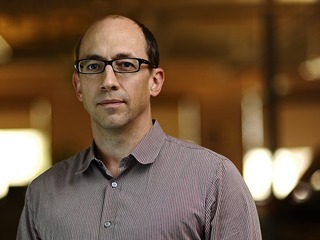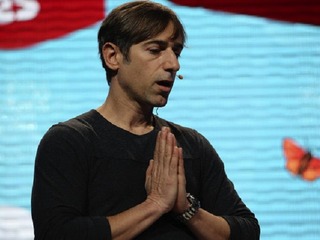Nao Medical adopts AI medical coding software XpertDox
Nearly $265B in claims are denied every year because of the way they're coded
Read more...
With Dick Costolo announcing that he will be stepping down as CEO of Twitter at the beginning of new month, this means Twitter will be getting its fourth CEO.
The company was founded by Jack Dorsey in 2006, who stayed on as its CEO until 2008, until he stepped down in favor of Evan Williams. Williams was CEO until 2010, when Costolo took over.
Dorsey, who is currently the CEO of Square, will be leading Twitter on an interim basis, but since he is keeping his other position it seems very unlikely that he will stay as CEO of Twitter for long.
Twitter's revolving door of CEOs sets it apart from many of its contemporaries.
Facebook, which is the company Twitter is most likely to be compared, has had the same CEO since it was launched in 2004: Mark Zuckerberg. And he doesn't seem to be going anywhere anytime soon.
Similarly, LinkedIn has only had two CEOs since it was founded in 2003: first co-founder Reid Hoffman, who held the job until 2009, when Jeff Weiner took over. He retains the job to this day.
Zynga, for all of its ups and downs, also has had only two CEOs. Co-founder Mark Pincus held the job from when the company was founded in 2007 until mid-2013, when he resigned. His replacement was Don Mattrick, the president of Microsoft’s Interactive Entertainment Business, who only held onto the job for around two years before giving it back to Pincus.
Another recently IPOed company is Box, which had the same CEO, co-founder Aaron Levie, since it was launched in 2005.
Microsoft has had three CEOs in its entire long history: Bill Gates, Steve Ballmer and the recently appointed Satya Nadella.
Even Google has only had two: co-founder Eric Schmidt and current CEO Larry Page.
There are two major tech companies that i can think of that has had more of a revolving door than Twitter: Yahoo and Appple, both of which struggled mightily to keep someone in charge for a long time.
Yahoo's first CEO was Tim Koogle, who was appointed in 1995, until he was replaced by Terry Semel, who became CEO in 2001. He lasted until 2007, and was replaced by Yahoo co-founder Jerry Yang.
After that, it got really dicey, with no other CEO lasting more than two years. Yang was replaced by Autodesk's CEO Carol Bartz in 2009, but she only held the top spot until 2011, when she was fired over the phone. Bartz’s ouster was seen, by some, as an example of sexism in Silicon Valley.
PayPal President Scott Thompson took over in January 2012. His tenure at Yahoo was marred by failure and scandal, and he was forced out after four months over a resume fudging scandal, where it came out that Thompson had lied about degrees he had received as an undergraduate.
The job was given to Marissa Mayer in July of 2012, and she has broken the streak, having now made it nearly three years on the job. Of course, there are plenty of people now calling for her head, so who knows how much longer she has.
Apple's first CEO was Michael Scott, who held the job from 1977 to 1981, when he was replaced by Mike Markkula, who held the job until 1983, when the job was given to John Sculley, who is now most famous for helping to kick Steve Jobs out of the company he had founded.
From 1993 to 1996 the CEO position was held by Michael Spindler and from 1996 to 1997, it was held by Gil Amelio.
After that, Steve Jobs made his triumphany return, and finally became CEO, until he died in 2011. Since then the company has been run by Tim Cook.
(Image source: japantimes.co)
Nearly $265B in claims are denied every year because of the way they're coded
Read more...Most expect to see revenue rise, while also embracing technologies like generative AI
Read more...The market size for 2023 was $10.31 billion
Read more...Startup/Business
Joined Vator on
Twitter is an online information network that allows anyone with an account to post 140 character messages, called tweets. It is free to sign up. Users then follow other accounts which they are interested in, and view the tweets of everyone they follow in their "timeline." Most Twitter accounts are public, where one does not need to approve a request to follow, or need to follow back. This makes Twitter a powerful "one to many" broadcast platform where individuals, companies or organizations can reach millions of followers with a single message. Twitter is accessible from Twitter.com, our mobile website, SMS, our mobile apps for iPhone, Android, Blackberry, our iPad application, or 3rd party clients built by outside developers using our API. Twitter accounts can also be private, where the owner must approve follower requests.
Twitter started as an internal project within the podcasting company Odeo. Jack Dorsey, and engineer, had long been interested in status updates. Jack developed the idea, along with Biz Stone, and the first prototype was built in two weeks in March 2006 and launched publicly in August of 2006. The service grew popular very quickly and it soon made sense for Twitter to move outside of Odea. In May 2007, Twitter Inc was founded.
Our engineering team works with a web application framework called Ruby on Rails. We all work on Apple computers except for testing purposes.
We built Twitter using Ruby on Rails because it allows us to work quickly and easily--our team likes to deploy features and changes multiple times per day. Rails provides skeleton code frameworks so we don't have to re-invent the wheel every time we want to add something simple like a sign in form or a picture upload feature.
There are a few ways that Twitter makes money. We have licensing deals in place with Google, Yahoo!, and Microsoft's Bing to give them access to the "firehose" - a stream of tweets so that they can more easily incorporate those tweets into their search results.
In Summer 2010, we launched our Promoted Tweets product. Promoted Tweets are a special kind of tweet which appear at the top of search results within Twitter.com, if a company has bid on that keyword. Unlike search results in search engines, Promoted Tweets are normal tweets from a business, so they are as interactive as any other tweet - you can @reply, favorite or retweet a Promoted Tweet.
At the same time, we launched Promoted Trends, where companies can place a trend (clearly marked Promoted) within Twitter's Trending Topics. These are especially effective for upcoming launches, like a movie or album release.
Lastly, we started a Twitter account called @earlybird where we partner with other companies to provide users with a special, short-term deal. For example, we partnered with Virgin America for a special day of fares on Virginamerica.com that were only accessible through the link in the @earlybird tweet.
What's next for Twitter?
We continue to focus on building a product that provides value for users.
We're building Twitter, Inc into a successful, revenue-generating company that attracts world-class talent with an inspiring culture and attitude towards doing business.
Startup/Business
Joined Vator on
Zynga is the largest social gaming company with 8.5 million daily users and 45 million monthly users. Zynga’s games are available on Facebook, MySpace, Bebo, Hi5, Friendster, Yahoo! and the iPhone, and include Texas Hold’Em Poker, Mafia Wars, YoVille, Vampires, Street Racing, Scramble and Word Twist. The company is funded by Kleiner Perkins Caufield & Byers, IVP, Union Square Ventures, Foundry Group, Avalon Ventures, Pilot Group, Reid Hoffman and Peter Thiel. Zynga is headquartered at the Chip Factory in San Francisco. For more information, please visit www.zynga.com.

Joined Vator on

Joined Vator on

Joined Vator on
CO-Founder and CEO of Box.
Joined Vator on

Joined Vator on


